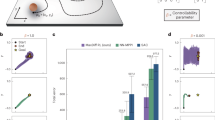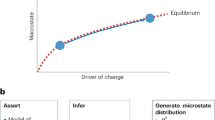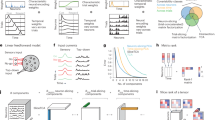Abstract
IT is rather curious that Prof, D'Arcy Thompson should refer to Tait's “Properties of Matter,” for I fancy I might claim some part of the credit for the paragraph in question. In a review of the first edition (NATURE, vol. xxxii., p. 314, 1885) I wrote:—“There is one matter suitable to an elementary work which I should be glad to see included in a future edition, viz., the principle of dynamical similarity, or the influence of scale upon dynamical and physical1 phenomena. It often happens that simple reasoning founded upon this principle tells us nearly all that is to be learned from even a successful mathematical investigation, and in the numerous cases where such an investigation is beyond our powers, the principle gives us information of the utmost importance.”
This is a preview of subscription content, access via your institution
Access options
Subscribe to this journal
Receive 51 print issues and online access
$199.00 per year
only $3.90 per issue
Buy this article
- Purchase on Springer Link
- Instant access to full article PDF
Prices may be subject to local taxes which are calculated during checkout
Similar content being viewed by others
Rights and permissions
About this article
Cite this article
RAYLEIGH The Principle of Similitude. Nature 95, 202–203 (1915). https://doi.org/10.1038/095202d0
Issue Date:
DOI: https://doi.org/10.1038/095202d0
This article is cited by
-
A complementary approach to experimental modeling and analysis of welding processes: dimensional analysis
The International Journal of Advanced Manufacturing Technology (2023)
-
How dimensional analysis can explain
Synthese (2014)
-
Modeling Diachronic Changes in Structuralism and in Conceptual Spaces
Erkenntnis (2014)
-
Theory change as dimensional change: conceptual spaces applied to the dynamics of empirical theories
Synthese (2013)
Comments
By submitting a comment you agree to abide by our Terms and Community Guidelines. If you find something abusive or that does not comply with our terms or guidelines please flag it as inappropriate.



